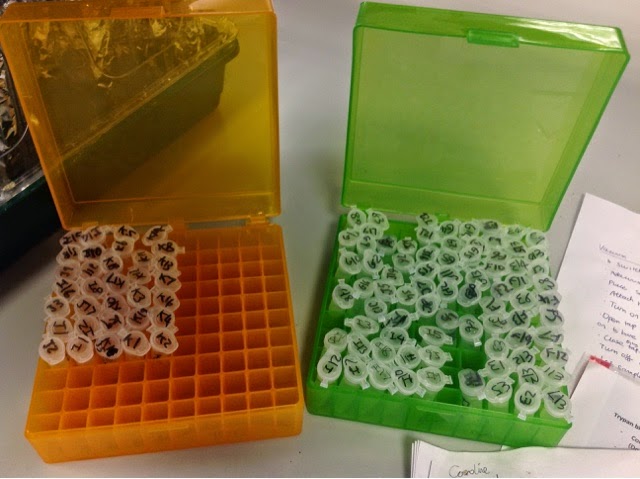Hello and welcome to my blog! My name is Caroline and I am a PhD student at the University of Sheffield. My research project focuses on Striga - a genus of parasitic plants that devastates harvests by infecting food crops. I am exploring the defence reactions that can make host plants more resistant against Striga. Due to my ongoing battles with anorexia, I haven't made as much progress as I would have liked but I am determined to finish the course.
This blog charts the ups and downs of life in the lab, plus my dreams to become a science communicator and forays into public engagement and science policy....all while trying to keep my mental and physical health intact. Along the way, I'll also be sharing new plant science stories, and profiles of some of the researchers who inspire me on this journey. So whether you have a fascination for plants, are curious about what science research involves, or just wonder what exactly I do all day, read on - I hope you find it entertaining!
Pages
Wednesday 27 May 2015
Crushed hope...
Wednesday 20 May 2015
My Brilliant 'Bonsai' Tobacco!
Friday 15 May 2015
A visit from a "Great Thinker" - Professor Ottoline Leyser, WorldExpert in Plant Development
The audience were especially keen to hear of Ottoline's experiences serving on Parliamentary Select Committees, particularly one on the topic of Genetically Modified crops. “It's quite intimidating as it is set up as a jury with a horseshoe of MPs in front of you but once it gets going, you're just doing your job”. And is there likely to be a change in the near future regarding the Government's current reluctance to engage in GM technology? “There might be. The Select Committee was quite supportive of a shift toward a new approach, and on top of that, many policy makers do not want to be seen to be dictated to by Europe.”
When asked if she found it frustrating that scientific research doesn't always drive policy, Ottoline was frankly realistic. “Science is only one line of evidence in evidence-based policy and it is completely legitimate that other factors drive policy. This includes political expediency - what actions would be good for poll ratings? But it IS frustrating when scientific evidence is abused to support certain policies. Complete transparency should be the basis of a policy, not 'fudging' to make all the evidence say the same thing”.
The discussion moved on to how science could be better communicated to the public - should jargon be jettisoned to make science more accessible? “There is too much emphasis that science is complicated and difficult. We need to deconstruct the idea that science is really hard and most people can't understand it and that scientists are 'special' people. I have a big problem with TV coverage of science - it is very dumbed down and increases the anxiety people have that science is really hard. Perhaps we need something more like The Great British Bake Off where random members of the public come in and do experiments?” After all, argues Ottoline, everybody performs science every day, whether they realise it or not. She gave the example of choosing the best route to get to work depending on whether it was raining, you had to visit the shops, if you had a lot to carry, etc. “Somehow we have built a system where science is done by boffins” she said. "The answer is not to dumb down but to bring people in".
 |
| Professor Ottoline Leyser |
With that in mind, she encouraged the audience to get involved in public outreach and policy activities. Apparently select committees are very keen for more early career researchers to respond to calls for evidence, especially as they tend to be more passionate and have less demands on their time than their supervisors! However, she urged us to consider the viewpoint of the public before simply wading in with our facts and knowledge. "One of the things that messes up science in policy is not understanding how people think" she argues. For instance, researchers would make more progress in allaying the public's fears about GM crops if they understood why exactly people are anxious about the technology." Ironically, most people usually want things to be better, they just have different ideas on how to get there”.






